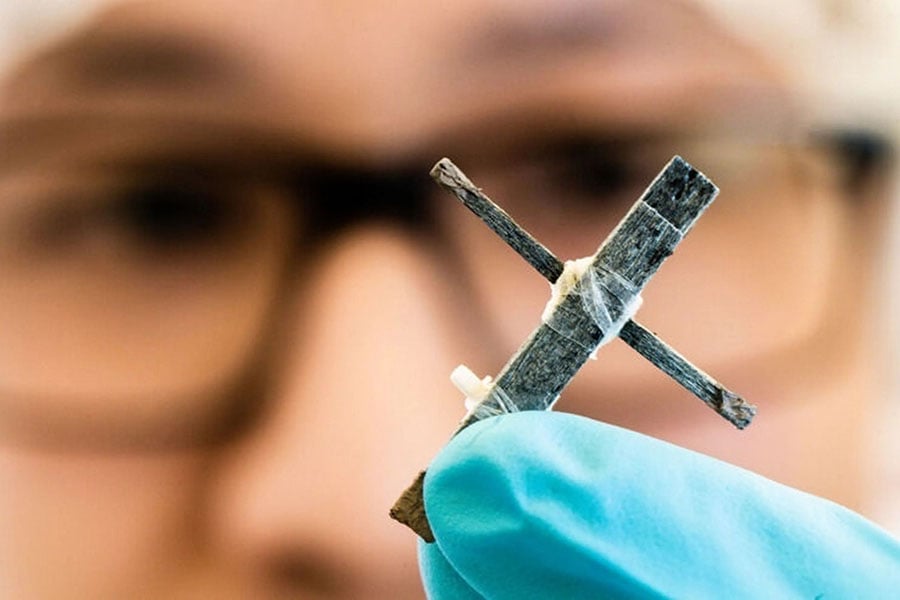
A transistor made of wood: Sign of a future revolution in materials?
Researchers at Linköping University, in association with the Royal Institute of Technology, Stockholm (KTH) have succeeded in developing the world's first wooden transistor
 It may be bulky but the first wood transistor works. Image: Courtesy of Linköping University / Thor Balkhed
It may be bulky but the first wood transistor works. Image: Courtesy of Linköping University / Thor Balkhed
The first ever transistor made of wood, capable of regulating an electrical flow, has been developed in a laboratory in Sweden. More ecological than traditional transistors, it opens the door to other developments while a practical use case has yet to be established.
Researchers at Linköping University, in association with the Royal Institute of Technology, Stockholm (KTH) have succeeded in developing the world's first wooden transistor. A transistor is a basic electronic component, usually made of pure silicon, which controls or amplifies electrical voltages and currents. They are found in all electronic devices, sometimes on microscopic scales. The challenge here was to make the wood capable of conducting electricity.
To achieve this technological feat, the researchers used balsa, a grainless wood with an even structure. They extracted the lignin from it, thus accentuating the presence of cellulose fibers. They then filled the empty channels with a conductive polymer or plastic (PEDOT:PSS) so that the wood block itself would become electrically conductive.
In the end, this first-ever wooden transistor is "slow" and "bulky," the researchers admitted. But the main accomplishment is that it functions, that it is able to regulate electricity flow without deteriorating. Therefore it can serve as a basis for other exciting future developments.







